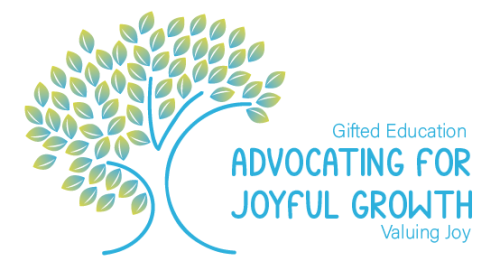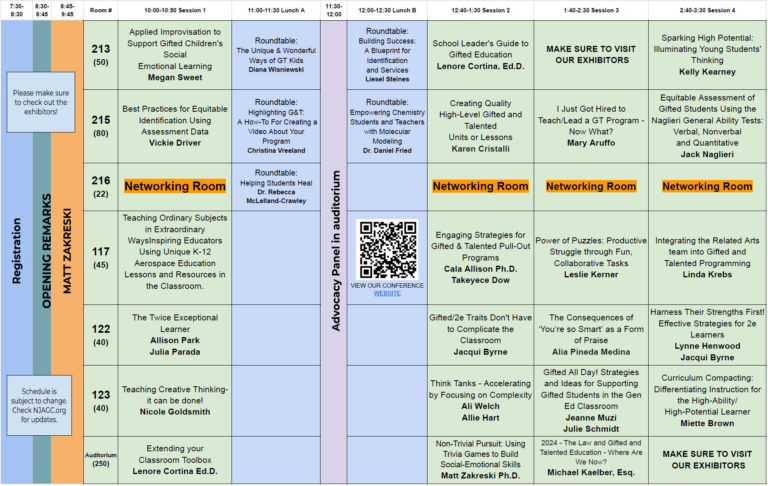NJ Association for Gifted Children
Presenter Portal
Presenter Portal
Presenter Portal
RegistrationRegister
Attendee Registration
Registration end 4/1
Register TodaySponsors
Sponsors
Become a SponsorSponsors
Sponsors
Become a SponsorExhibitor Info
Exhibitors Registration is now closed.
Exhibitor Registration
Exhibitor Registration
Events Info
Events
Day-of Information for our 2023 Conference
Event Info
Event registration is now closed
Venue and Room Block Information
Venue
Registration begins at 7:30am
We have secured a room block, however, rooms are limited. Please contact the hotel directly either by phone or the online booking link below to reserve your room.
Group code: 91B
Phone: (609) 689-1260
Book Online by March 12, 2024
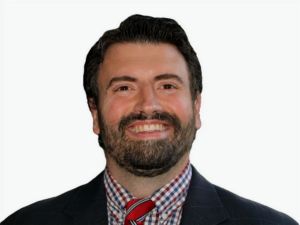
Matthew “Dr. Matt” Zakreski, PsyD is a high-energy, creative clinical psychologist who utilizes an eclectic approach to meet the specific needs of his neurodivergent clients. He is proud to serve the Gifted community as a consultant, a professor, an author, and a researcher. He has spoken over 300 times all over the world about supporting neurodivergent kids.
Dr. Zakreski is a member of Supporting the Emotional Needs of the Gifted (SENG), the National Association for Gifted Children (NAGC), the New Jersey Association for Gifted Children (NJAGC), and the Pennsylvania Association for Gifted Education (PAGE). Dr. Zakreski graduated from Widener University’s Institute for Graduate Clinical Psychology (IGCP) in 2016. He is the co-founder of The Neurodiversity Collective: https://www.theneurodiversitycollective.com
Keynote Topic
And the Children Shall Lead Us: A Guide to Interest-Based Learning
Gifted and twice-exceptional kids love learning but don’t always love school. If your child wants to learn everything they can about astrophysics, neurosurgery, or the Peloponnesian War, why would we get in the way of that intrinsic motivation and joy? The education system tends to be resistant to the ideal of Interest-Based Learning (IBL), or the practice of layering educational goals through a child’s interests to enhance enthusiasm and engagement. This session will explore why IBL works, how to adapt it for your neurodivergent child, and how to advocate for it as an educational approach regardless of your school system.
Presenters
Session 1: 10:00am – 10:50am
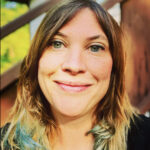
Megan Sweet
Megan Sweet is an NJ-based comedian and founder of IMPROVed Mind. IMPROVed Mind helps individuals of any age build positive relationships with themselves and others through applied improvisation, humor, and SEL.
Applied Improvisation to Support Gifted Children’s Social Emotional Learning
Come play during this interactive workshop and learn how to apply the tenets and principles of Applied Improvisation (the yes, and principle, embracing imperfection, etc.) to support your gifted learners! Explore how Applied Improv can support four core SEL competencies: self-awareness, relationship skills, social awareness, and self-management!
Room 215

Vickie Driver
Victoria Driver, M.B.A., M.Ed., has 17+ years of experience working with educators and test authors on CogAT® and the Iowa Assessments™, with expertise in equitable assessment practices, large-scale data analysis, psychometrics, and statistics.
Best Practices for Equitable Identification Using Assessment Data
This session explores research-backed practices for equitable student placements using multiple criteria, considering the impact of various data on different subgroups. We will delve into recent research on differentiated identification practices and their effects on proportionality and subgroup representation. Key discussion points include assessment types, multiple measures, combination strategies, and local vs. national norms.
Room 117
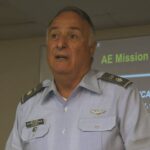
Michael Castania
Mr. Castania taught high school for 35 years, earning himself the educational experience that laid the foundation for his career in Aerospace Education. Starting in 1996, Mr. Castania joined the Civil Air Patrol and quickly progressed through the ranks to Lt. Colonel. During his 27+ year tenure, he has received myriad of awards including but not limited to Master Ratings in Aerospace Education and Professional Development, Exceptional Service Award, Meritorious Service Award, National and Region Commander’s Commendations, National General Jeanne M. Holm Aerospace Education Officer of the Year Award, and induction into New Jersey’s Aviation Hall of Fame.
Teaching Ordinary Subjects in Extraordinary WaysInspiring Educators Using Unique K-12 Aerospace Education Lessons and Resources in the Classroom
Competition for highly qualified, technical talent will continue to intensify to keep pace with technological innovation. To meet the challenge, educators must rapidly develop a STEM curriculum, often with limited funding. Educators will see aerospace/STEM lesson plans, activities, textbooks, products, and programs to use in any classroom or after-school or enrichment programs. CAP’s educational materials can be used across disciplines in both core and elective studies.
Room 122
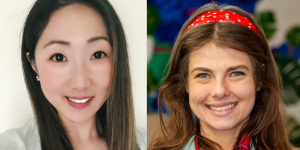
Allison Park
Allison Park, M.A.Ed., is a leader in development of Twice Exceptional school programming and NJAGC’s 2023 Parent of the Year.
Julia Parada
Julia Parada, B.S.Ed. is completing her Masters of Educational Leadership M.A.Ed. and is NJAGC’s 2024 Teacher of the Year.
The Twice Exceptional Learner
Instruction acts as an invitation for students to show and grow potential. Infusing content-based lessons with strategies promoting critical and creative thinking can build and encourage students’ skills. We share sample lessons designed to encourage higher-level thinking, particularly with diverse learners, and resources for incorporating thinking strategies into classroom lessons.
Room 123
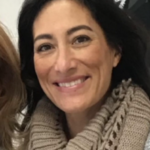
Nicole Goldsmith
Nicole Goldsmith has over two decades of experience with G&T. As a highly experienced consultant and educator, she has worked with many school districts to design and implement specialized gifted programming that promotes building creative capacity and developing critical thinking skills.
Teaching Creative Thinking- it can be done!
Unlock the Potential: Creating Thinking Workshop for G&T Teachers Join us to explore research based teaching strategies for nurturing creativity in gifted education. Gain practical tools and insight to inspire your students, foster unique perspectives, and enhance your teaching approach. Ignite creativity, empower minds, and transform your classroom.
Auditorium
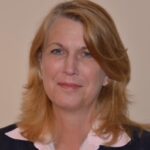
Lenore Cortina Ed.D.
Lenore Cortina, Ed.D. is a gifted education consultant and author of educational materials for advanced learners. She consults with school districts to evaluate and develop gifted education programs and services, and delivers professional development in all areas of gifted education. Dr. Cortina has been involved in gifted education for over 40 years as an advocate, consultant, parent, classroom and gifted teacher, school administrator and is a retired Faculty Coordinator of the Gifted Education Certificate Program at the Rutgers Graduate School of Education.
Extending your Classroom Toolbox
This session focuses on why and how to modify existing classroom tools to meet the needs of advanced learners in the general education or gifted classroom. We’ll focus on two specific strategies: differentiated graphic organizers and tiered prompts/questions. Adapting existing learning tasks and tools provides the opportunity for students with diverse learning needs to engage with processes, skills and content that challenges them. This strategy allows students to work at their own pace and academic ability level, while focused on the same big ideas and concepts.
Lunch A: 11:00am – 11:30am

Diana Wisniewski
Diana Bavngaard Dubey Wisniewski has been a teacher for over 25 years in Gifted & Foreign Language Instruction, concentrating in Immersion and International Baccalaureate Programs.
She holds teaching certifications in Gifted Education, Modern Foreign Languages, Spanish, French, English as a Second Language, Bilingual Education, Language Arts, Social Studies, along with Supervisory & Administrative licenses.
Roundtable: The Unique & Wonderful Ways of GT Kids!
A Discussion of the Unique Traits and Needs of GT Kids for Parents & Teachers. Open to a Q & A. How to understand them, serve them and deal with them in all their diverse, quirky, and wonderful ways.
Room 215

Christina Vreeland
Christina Vreeland is a Supervisor of G&T, Music, Dance, and Art in Woodbridge Township and the recipient of the NJAGC 2023 Administrator of the Year Award. She is also a mom to three teenage sons with their own unique gifts and talents.
Highlighting G&T: A How To For Creating a Video About Your Program
Have you been building your G&T program over the years and have a lot of new developments to share? Do people tell you that they were not aware of G&T processes or offerings? Consider making an informational video to share with your colleagues and community. This workshop will explain how we did it.
Room 216
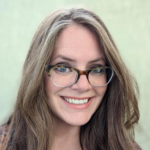
Dr. Rebecca McLelland-Crawley
Dr. Rebecca McLelland-Crawley is a National Board Certified Teacher at Community Middle School in Plainsboro, NJ. She is passionate about supporting student creativity, academic enrichment, personal growth, and educating the whole child.
Helping Students Heal
Grief is often a taboo topic, yet all of us grieve throughout our lives. Children are no exception to the grief journey and gifted children with overexcitabilities and twice exceptional students may also need more support from the supportive adults in their lives. Instead of ignoring grief, join us to hear from students about what it’s like to grieve while gifted.
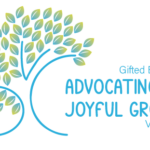
Advococacy Panel
Lunch B: 12:00pm – 12:30pm
Room 213
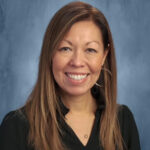
Liesel Steines
Liesel Steines is the Director of Curriculum & Instruction at Franklin Lakes Public Schools. She holds two MAs (Educational Leadership, Ramapo College) (Childhood/ Elementary Education, Teachers College) and a BA (Rutgers College).
Building Success: A Blueprint for Identification and Services
Participants will be provided with an overview of one district’s solution to designing a responsive continuum of services for students exhibiting gifted behaviors while complying with New Jersey’s SGTEA. The workshop will cover identification through the use of student profiles and practical strategies for implementing a multi-tiered system of services.
Room 215
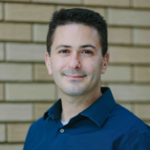
Dr. Daniel Fried
Dr. Fried is the founder of Biochemistry Literacy for Kids, and initiative that brings college-level science to kids starting in elementary school. He is a former professor of chemistry at Saint Peter’s University.
Empowering Chemistry Students and Teachers with Molecular Modeling
This roundtable will show teachers how to explore the world of biochemistry and medicinal chemistry through beautiful 3D computer modeling activities and hand-held molecule building projects. Help your students jump right into the science that is usually reserved for college students!
Session 2: 12:40pm – 1:30pm
Room 213

Lenore Cortina Ed.D.
Lenore Cortina, Ed.D. is a gifted education consultant and author of educational materials for advanced learners. She consults with school districts to evaluate and develop gifted education programs and services, and delivers professional development in all areas of gifted education. Dr. Cortina has been involved in gifted education for over 40 years as an advocate, consultant, parent, classroom and gifted teacher, school administrator and is a retired Faculty Coordinator of the Gifted Education Certificate Program at the Rutgers Graduate School of Education.
School Leader’s Guide to Gifted Education
This session focuses on the issues administrators will face when making decisions about gifted education in the district or school. Topics include New Jersey requirements for identification and programming, options for programs and service delivery, making decisions related to the identification of advanced learners, and supporting teachers in implementing programs and services to gifted learners.
Room 215
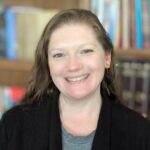
Karen Cristalli
Karen Cristalli, M.Ed, is responsible for coordinating the K-12 Gifted and Talented program in Harrison, NJ. She is also pursuing her doctorate with a focus on gifted education. In addition to her role as co-president of the Hudson County Gifted and Talented Consortium, Karen is a member of the Intersectionality of Cognitive and Affective Needs Subcommittee for the Strengthening Gifted and Talented Education Act Committee.
Creating Quality High-Level Gifted and Talented Units or Lessons
This workshop will help you create high-quality units or lessons for gifted and talented students. We will explore what our students should learn and how to differentiate the curriculum to meet their specific needs. You will better understand designing or adapting lessons for gifted students by analyzing instructional examples.
Room 117
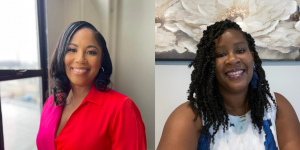
Cala Allison Ph.D
Cala Allison, Ph.D., is a gifted education teacher in Camden, NJ with over 25 years in public education. Dr. Allison was instrumental in designing an engaging pull-out program incorporating STEAM, cross-curricular content, and social-emotional learning.
Takeyece Dow
Takeyce Dow is a gifted education teacher in Camden, NJ, with over 20 years of experience, including a storied career in NY. Mrs. Dow was instrumental in designing an engaging pull-out program incorporating STEAM, cross-curricular content, and social-emotional learning.
Engaging Strategies for Gifted & Talented Pull-Out Programs
Are you seeking effective strategies to increase student engagement in your gifted and talented program? In this session, you will be guided through hands-on, creative, and engaging strategies and resources that you can immediately use in your classroom. The presenters have identified best practices that have proven successful in their program. They are excited to help you transform your classroom into an engaging, learner-centered program for gifted students.

Cala Allison Ph.D
Cala Allison, Ph.D., is a gifted education teacher in Camden, NJ with over 25 years in public education. Dr. Allison was instrumental in designing an engaging pull-out program incorporating STEAM, cross-curricular content, and social-emotional learning.

Takeyece Dow
Takeyce Dow is a gifted education teacher in Camden, NJ, with over 20 years of experience, including a storied career in NY. Mrs. Dow was instrumental in designing an engaging pull-out program incorporating STEAM, cross-curricular content, and social-emotional learning.
Engaging Strategies for Gifted & Talented Pull-Out Programs
Are you seeking effective strategies to increase student engagement in your gifted and talented program? In this session, you will be guided through hands-on, creative, and engaging strategies and resources that you can immediately use in your classroom. The presenters have identified best practices that have proven successful in their program. They are excited to help you transform your classroom into an engaging, learner-centered program for gifted students.
Room 122
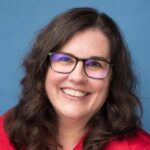
Jacqui Byrne
Jacqui Byrne is the visionary behind FlexSchool – a network of schools specifically designed to engage and support the creative, quirky, asynchronous minds of gifted and twice-exceptional (2e) students. Jacqui is a sought-after speaker and a member of the Bridges Graduate School Advisory Council, and the Advisory Board for the documentary film The G Word.
Gifted/2e Traits Don’t Have to Complicate the Classroom
Gifted and twice-exceptional (2e) students are frequently misunderstood in the classroom. Using gifted characteristics, Jacqui will discuss how twice-exceptional (2e) students make classrooms more complicated for teachers and share how teachers can both understand these wonderful students and help them thrive. This session is for teachers and parents who are not familiar with the ways in which classroom environments can be changed to support 2e students. Jacqui will include scripts that are successful with students whose behavior is misunderstood as lazy, disrespectful, or apathetic.
Room 123
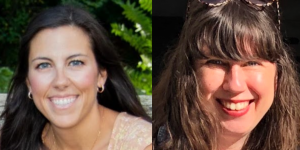
Ali Welch
Ali Welch has been an educator for eleven years. She has worked as a classroom teacher, academic support and most recently as SOAR Coordinator. She has a strong belief that all children, when given the opportunity, can soar!
Allie Hart
Allie Hart has been an educator for twenty four years. She has worked as a special ed, classroom and academic support teacher, and most recently as SOAR Coordinator. She believes that a rising tide lifts all ships and is excited to help others revamp their GT services.
Think Tanks – Accelerating by Focusing on Complexity
Looking for ways to better accelerate GT student learning? Taking a detour from the traditional view of acceleration, or rather moving students onto the next, advanced concept, Think Tanks allow students to accelerate their learning by focusing on the complexity at which they learn topics.
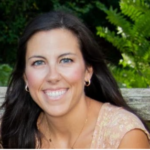
Ali Welch
Ali Welch has been an educator for eleven years. She has worked as a classroom teacher, academic support and most recently as SOAR Coordinator. She has a strong belief that all children, when given the opportunity, can soar!
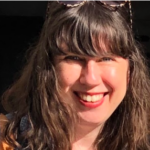
Allie Hart
Allie Hart has been an educator for twenty four years. She has worked as a special ed, classroom and academic support teacher, and most recently as SOAR Coordinator. She believes that a rising tide lifts all ships and is excited to help others revamp their GT services.
Think Tanks – Accelerating by Focusing on Complexity
Looking for ways to better accelerate GT student learning? Taking a detour from the traditional view of acceleration, or rather moving students onto the next, advanced concept, Think Tanks allow students to accelerate their learning by focusing on the complexity at which they learn topics.
Auditorium

Matt Zakreski Ph.D.
Matthew “Dr. Matt” Zakreski, PsyD is a high-energy, creative clinical psychologist who utilizes an eclectic approach to meet the specific needs of his neurodivergent clients. He is proud to serve the Gifted community as a consultant, a professor, an author, and a researcher. He has spoken over 300 times all over the world about supporting neurodivergent kids.
Non-Trivial Pursuit: Using Trivia Games to Build Social-Emotional Skills
Session 3: 1:40pm – 2:30pm
Room 215

Mary Aruffo
Proud to have been the first gifted and talented program for Glassboro Public School District- an educator, always, with a passion for advocating for gifted services (or whatever it takes for a child to succeed, in and out of school.) I love watching educators succeed in their craft – now more than ever.
I Just Got Hired to Teach/Lead a GT Program – Now What?
The journey in providing gifted services for a district, whether large or small, is ever evolving, and can be challenging, especially if this is a new endeavor in your professional career. Join me, as I lead an interactive discussion, designed to look at the various components of a district and how all of this can affect a gifted program. When you are new, you want to be in the know. Let’s talk it through – and leave with a list of things to do that have purpose.
Room 117

Leslie Kerner
Co-Founder and COO of Silverquicken Education, Leslie has led education organizations for the past 20 years, building products and professional services
Power of Puzzles: Productive Struggle through Fun, Collaborative Tasks
That give educators the tools they need to meet every student’s needs. It may seem trivial, but fun can do serious work! Join us and explore how educators, gifted coordinators, and other school leaders can harness the power of complex and engaging puzzles to cultivate communities of learners who joyously engage in productive struggle and develop life-long learning attitudes and habits.
Room 122

Alia Pineda Medina
Alia Pineda Medina is a 2nd year Ph.D. student in Gifted Education at Purdue University. She received her Bachelor of Science in Childhood Education from the City College of New York (CUNY).
The Consequences of ‘You’re so Smart’ as a Form of Praise
The words we use when celebrating the success of gifted students can have lasting social-emotional impacts. How do we know what are the right things to say? This session will explore the consequences of using ability-praising compliments, and learn to apply appreciative, effort-focused feedback that will celebrate the whole student.
Room 123
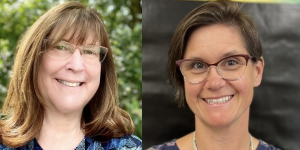
Jeanne Muzi
Jeanne Muzi is the K-8 Supervisor of Gifted Education in Lawrence Township Public Schools. She also serves as the Principal of Slackwood Elementary School.
Julie Schmidt
Julie Schmidt is the Gifted Education Specialist in Lawrence Township Public Schools for grades K-3.
Gifted All Day! Strategies and Ideas for Supporting Gifted Students in the Gen Ed Classroom
This session will provide lots of ideas and strategies for supporting and guiding Gifted Students in the General Education Classroom, where many spend the bulk of their day. In addition, methods and approaches for revealing the great potential in many of our underserved Gifted Students will be shared.
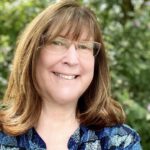
Jeanne Muzi
Jeanne Muzi is the K-8 Supervisor of Gifted Education in Lawrence Township Public Schools. She also serves as the Principal of Slackwood Elementary School.
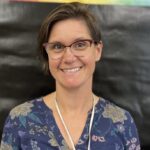
Julie Schmidt
Julie Schmidt is the Gifted Education Specialist in Lawrence Township Public Schools for grades K-3.
Gifted All Day! Strategies and Ideas for Supporting Gifted Students in the Gen Ed Classroom
This session will provide lots of ideas and strategies for supporting and guiding Gifted Students in the General Education Classroom, where many spend the bulk of their day. In addition, methods and approaches for revealing the great potential in many of our underserved Gifted Students will be shared.
Auditorium
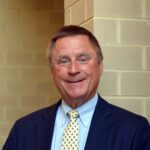
Michael Kaelber, Esq.
Michael F. Kaelber is the Coordinator for Online Course Development for LEGAL ONE NJPSA/FEA, having retired in July 2017 from his position of Director of Legal and Labor Relations Services Department of the New Jersey School Boards Association after over 29 years of service to the Association. Mr. Kaelber is an NJAGC Trustee, a member of the NJAGC Hall of Fame, a member of the Rutgers Advisory Group on Gifted Education and a frequent presenter on school law issues at programs sponsored by educational and legal organizations.
Michael’s involvement in gifted education began when daughter Kelli and son Brian were each identified as gifted students in the Woodbridge Township school district; Kelli in academics, theater arts and music and Brian in music.
2024 – The Law and Gifted and Talented Education – Where Are We Now?
Session 4: 2:40pm – 3:30pm
Room 213
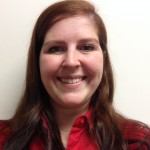
Dr. Kelly Kearney
Dr. Kelly Kearney is a Research Scientist at the Renzulli Center at the University of Connecticut. She received her Ph.D. at UConn in 2014 and currently works on multiple Center research projects.
Sparking High Potential: Illuminating Young Students’ Thinking
Instruction acts as an invitation for students to show and grow potential. Infusing content-based lessons with strategies promoting critical and creative thinking can build and encourage students’ skills. We share sample lessons designed to encourage higher-level thinking, particularly with diverse learners, and resources for incorporating thinking strategies into classroom lessons.
Room 215
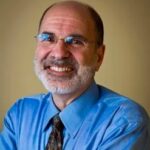
Jack Naglieri
Jack A. Naglieri published 23 books, 51 tests and 300 research papers. He is known for the NNAT and the new Naglieri General Ability Tests: Verbal, Nonverbal and Quantitative with an emphasis on equitable identification.
Equitable Assessment of Gifted Students Using the Naglieri General Ability Tests: Verbal, Nonverbal and Quantitative
Equitable identification of gifted students can be achieved using tests that measure thinking in a way that does not require academic knowledge. When universal assessment is combined with national and local norms and the newly configured Naglieri Verbal, Nonverbal and Quantitative tests, equitable assessment can be achieved. Find out how!
Room 117
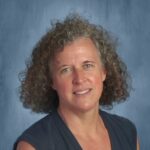
Linda Krebs
Linda started as a teacher of the gifted and talented, also teaching ELA. A school library media specialist, she also served as enrichment coordinator and technology coach. Currently Linda works as a children’s librarian with the Monmouth County Library and remains an active member of the Shore Consortium for the Gifted & Talented.
Integrating the Related Arts team into Gifted and Talented Programming
Utilize the strengths of the related arts team (technology, art, music, library, physical education) to provide classroom enrichment, gifted and talented instruction and projects, special gifted and talented programming to highlight student (and faculty!) talents.
Room 122
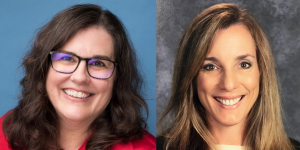
Jacqui Byrne
Jacqui Byrne is the visionary behind FlexSchool – a network of schools specifically designed to engage and support the creative, quirky, asynchronous minds of gifted and twice-exceptional (2e) students. Jacqui is a sought-after speaker and a member of the Bridges Graduate School Advisory Council, and the Advisory Board for the documentary film The G Word.
Lynne Henwood
Lynne Henwood is Head of School for FlexSchool’s Cloud Campus, and served two terms as President of the New Jersey Association for Gifted Children
Harness Their Strengths First! Effective Strategies for 2e Learners
Have you ever seen a compilation of real 2e test scores? We’ll look at the data and then teach you how to use that data to effectively teach 2e students in your classroom. Come and learn how to ground your lesson plans in research-based activities that work.

Jacqui Byrne
Jacqui Byrne is the visionary behind FlexSchool – a network of schools specifically designed to engage and support the creative, quirky, asynchronous minds of gifted and twice-exceptional (2e) students. Jacqui is a sought-after speaker and a member of the Bridges Graduate School Advisory Council, and the Advisory Board for the documentary film The G Word
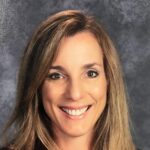
Lynne Henwood
Lynne Henwood is Head of School for FlexSchool’s Cloud Campus, and served two terms as President of the New Jersey Association for Gifted Children
Harness Their Strengths First! Effective Strategies for 2e Learners
Have you ever seen a compilation of real 2e test scores? We’ll look at the data and then teach you how to use that data to effectively teach 2e students in your classroom. Come and learn how to ground your lesson plans in research-based activities that work.
Room 123
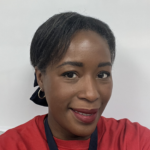
Miette Brown
Miette Brown serves as a dedicated STEM K-5 teacher in the Dunellen Public Schools district. Her fervor lies in generating challenging and enriching learning experiences for students. She has presented at several professional conferences.

